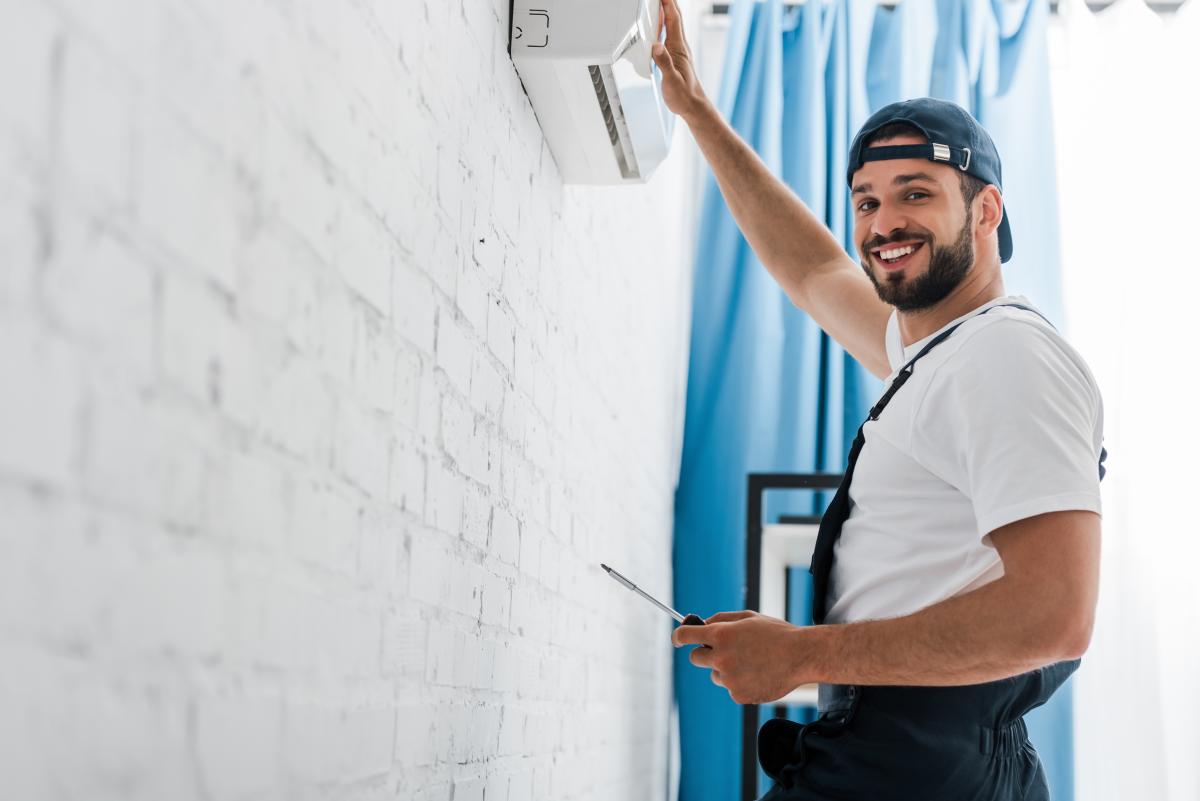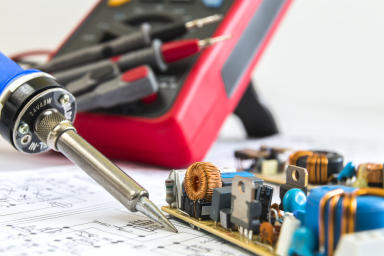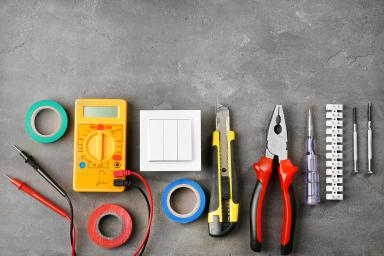How To Hire An HVAC Repair Contractor

Reliable HVAC equipment is the key to year-round comfort at home and at work. A properly functioning heating and cooling system can protect your family or employees by ensuring their health, safety, and well-being. For optimal performance, all HVAC systems, including heat pumps, air conditioners, and furnaces, require routine maintenance and occasional repairs. Here's how to hire the most qualified HVAC repair technician or contractor for the job whether you need a simple tuneup or a complete installation.
What's Involved in HVAC Maintenance?
The goal of preseason maintenance is to prevent electrical and mechanical issues before they affect your comfort or require costly repairs. Studies show that HVAC maintenance provides a significant return on investment by increasing efficiency, preventing breakdowns, and extending the equipment's lifespan. Here are a few of the maintenance tasks that equipment manufacturers and service providers recommend.
Cooling Maintenance
For optimal performance, air conditioners and heat pumps should be serviced every spring before the cooling season begins. AC tuneups typically include the following items.
Checking the refrigerant
Measuring the current
Tightening electrical and mechanical connections
Lubricating moving parts
Flushing the condensate drain
Cleaning the condenser coils
Heating Maintenance
Heating systems, especially furnaces, require additional maintenance for safety and efficiency. To prevent carbon monoxide buildup and to reduce wintertime energy use, equipment owners should make sure that their technician will complete the following tasks.
Inspecting the heat exchanger
Checking the chimney and vent
Cleaning the burner and nozzles
Adjusting the air-fuel balance
Testing the fuel valves
Optimizing the airflow
Other Maintenance Requirements
If you rely on air purifiers, ventilators, or UV lamps to enhance your indoor air quality, these devices may require annual or semiannual maintenance. Your contractor can advise you on maintenance requirements. You can also consult your owner's manual or the manufacturer for more details. Residential and commercial customers may also benefit from joining an annual service club that provides year-round coverage for a fixed rate.
When Do I Need an HVAC Repair Company?
Your HVAC contractor is a valuable partner throughout the system's lifespan. Qualified technicians can help with maintenance, new installations, replacements, and emergency repairs. Here are a few reasons why you might need to call an AC repair company.
Noises:
Unusual operating noises may indicate that your heater or air conditioner is headed for a breakdown. Humming, whining, and rhythmic whopping noises could indicate problems with the capacitor, belts, or bearings as well as mechanical obstructions.
Comfort Challenges:
Hot and cold spots point to airflow imbalances or leaky ductwork. Experienced contractors can determine the cause of the problem and make any necessary adjustments or repairs to restore your comfort.
No Heating or Cooling:
If the unit won't start or simply blows air without heating or cooling your home, call a professional before the problem worsens. Electrical and mechanical problems as well as airflow issues, such as clogged filters, could be the culprit.
Inflated Costs:
Rising ownership costs could mean that it's time for HVAC repairs or maintenance. This is especially true if the unit is running longer, providing less output, or using more energy than previous seasons.
Age:
If your heater or air conditioner is more than 10 or 15 years old and struggles to keep your home or business comfortable, it may be time to schedule repairs or explore replacement systems.
Expert Tip: Do I Need a Service Contract?
Signing up for an annual service plan is an easy way to prevent repairs, extend the life of your HVAC system, and control your cost of ownership. In addition to providing preseason tuneups for your heating and cooling equipment, many maintenance plans include priority scheduling, repair discounts, free diagnostics, or other value-added perks. These features can be especially helpful if your heater or air conditioner is no longer under warranty. For best results, consider cost, features, and limitations when comparing maintenance plans.
Does an HVAC Repair Company Need Certifications or a License?
Yes, most states have a licensing program for mechanical contractors. Even if a statewide license isn't required, your local community may have its own rules. Heating and cooling companies may also carry mandatory or optional liability insurance and surety bonds that can protect you in case your property is damaged or the job doesn't go according to plan. Usually, the company providing services is required to meet the state's licensing and insurance requirements, and Individual technicians are subject to different standards.
Credentials for HVAC Technicians
HVAC-R technicians are licensed in some states as certified or registered professionals. However, training requirements are often left up to individual contractors and manufacturers. Here are a few of the most important credentials.
EPA Certification:
Section 608 of the Clean Air Act requires all professionals who service air conditioning and refrigeration equipment to complete a refrigeration handling course to protect the environment from ozone-depleting chemicals. To qualify, technicians must pass an equipment-specific exam offered by an EPA-approved provider. This credential does not expire.
NATEX:
North American Technician Excellence is the industry's premier certification program. This nonprofit has accredited more than 34,000 HVAC-R professionals. To become NATE-certified, technicians must pass rigorous core and specialty exams and meet continuing education requirements. Studies show that NATE-certified technicians have more experience, fewer callbacks, and a higher satisfaction rate.
ACCA:
Air Conditioning Contractors of America accredits qualified HVAC companies, publishes industry standards for system design and installation, and offers rigorous training programs for technicians and other professionals. Training programs cover all aspects of the trade from ductwork sizing to zoning. ACCA also manages the Qtech technician certification program.
Other Credentials and Qualifications
In addition to choosing a company that's licensed, bonded, and insured, customers should consider the contractor's credentials and areas of expertise. Here are a few things to consider before choosing an HVAC company.
Industry experience
Customer reviews
Brand partnerships
Technician certifications
Warranties and guarantees
Free estimates
Expert Tip: Can I Service HVAC Equipment Myself?
Heating and cooling work is not a DIY project. There are many reasons why experts who install and service HVAC systems require state-issued licenses. These professionals are trained to perform repairs and maintenance safely while protecting the environment, preventing electrical hazards, and safeguarding your warranty coverage. While you can and should perform basic maintenance tasks yourself, such as changing AC filters, programming your thermostat, or resetting tripped circuit breakers, complex repairs and new installations should be performed by a qualified HVAC professional.
How Much Do HVAC Repairs Cost?
The cost of HVAC services varies widely depending on the system's make and model well as your geographic location. Generally speaking, licensed HVAC contractors charge $100 to $150 per hour. Service calls and tuneups typically start around $85 while minor repairs range from $200 to $400. Here are average cost estimates for other common HVAC services:
Gas furnaces cost $4,000-$5,000, and electric systems run between $1,500-$2,500 plus labor.
Central air conditioners cost $3,500-$7,600 plus labor depending on the size of the system.
Ductless mini-splits cost anywhere from $3,000-$5,000 plus labor.
Heat pump installations typically run between $5,000 and $6,500.
New ductwork may add $1,200 -$4,200 to the cost of the project.
AC service can cost as little as $75-$250 for minor repairs and up to $2,900 for major parts.
Heating repairs can range from $150 for blower motor components to $1,200 for a new heat exchanger.
Before hiring an HVAC company, request a written estimate that includes parts, labor, and any additional fees. You can also protect yourself from repair bills by investing in preventive maintenance and addressing problems before they worsen.
5 Questions To Ask Before Hiring An HVAC Technician
1. What types of licensing, certifications, and insurance do you have?
In most areas, heating and cooling professionals must have a mechanical contractors license as well as bonds and liability insurance. The EPA requires all service technicians to have a Section 608 refrigerant handling certificate. The industry also has a number of optional certifications available through organizations like NATE, ACCA, the Refrigeration Service Engineers Society, and the National Air Duct Cleaners Association.
2. What experience do you have?
Years of experience can be an important indicator of service quality as most HVAC companies are founded by contractors who have worked their way through the ranks. It's also important to ensure that the company has knowledge that's relevant to your situation. This is especially true if you have a high-efficiency HVAC system or need a factory-authorized dealer.
3. Can you provide references?
Trustworthy contractors should be happy to provide references from previous customers. Ideally, consumers should ask for a minimum of three relevant references and take the time to follow up with each individual. Prospective clients should ask about the company's strengths and weaknesses, including any difficulties or concerns they had during the process.
4. What is and is not included in the written estimate?
Written estimates should detail all costs, including parts, labor, permits, environmental fees, and taxes as well as the time of completion and other pertinent details. Estimates for new installations and replacements are typically free although contractors may charge a diagnostic fee before estimating repair costs. For most jobs, it's best to get pricing information in writing. Homeowners should also determine whether the total will change.
5. Do you offer any guarantees?
Most reputable HVAC contractors offer a 100% satisfaction guarantee on repairs and new installations. Parts and labor are typically covered for one year, and if you aren't happy with your new HVAC unit, many contractors will remove the system and refund your money during the first year.
Ready to speak to an expert? Here is our list of the best HVAC Professionals near you.
Expertise.com StaffAuthor
At Expertise.com, we're passionate about guiding people to find the best in life, whether they're researching how to start a small business, planning a home remodeling project, or discovering a new hobby.




